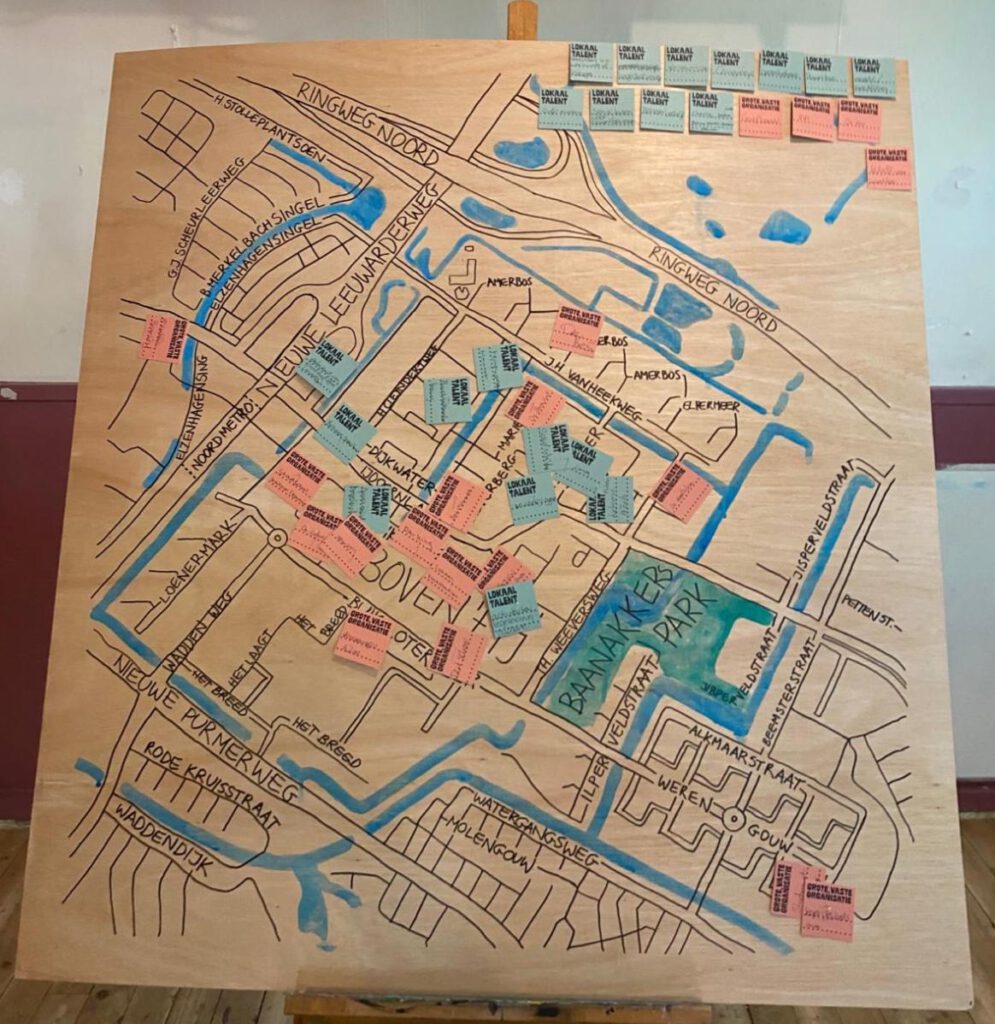Every neighborhood or village has passionate people who together form a network on which the entire neighborhood can build. Community Wealth Building sees these neighborhood collectives as the backbone of the neighborhood and of the economy: they create social and economic value. With this method you help communities to get involved in the economy and to make the economy more social and democratic.
Two years ago we published a guide to Community Wealth Building. We tried to answer the questions: How do you democratize the economy? How do you ensure that the value that people create together remains in their community?
Together with the municipality of Amsterdam, we have summarized 5 steps, many tips and lessons learned from both our own work and from others around the world in this toolkit.
Our mission is to help municipalities and regions everywhere kickstart their own Community Wealth Building plans.
The toolkit is intended for active residents, involved civil servants, welfare organizations and social enterprises. We hope that these concrete tools will inspire and enable you to get started yourself. Find the toolkit here: commonsnetwork.org/2022/05/30/community-wealth-building-toolkit-essay-video/

Mapping of our neighbourhood assembly at Buurthuis de Bol
The role of cooperatives
Cooperatives are important for Community Wealth Building because cooperatives are owned and operated by local residents. The local residents become the members of the cooperative. Instead of having a board at the top that makes decisions about everyone, the members make decisions together. This ensures that the decisions made are in the best interest of the community and that the profits made remain within the community. In other words: the democratization of the economy.
For example, worker cooperatives can create jobs for local residents, helping to improve the economic stability of the community through good working conditions and fair wages. Because these cooperatives offer local services, local residents and anchor institutions can purchase these from them. In this way, cooperatives strengthen the local economy.
There are many different types of cooperatives. Employee, entrepreneurial, consumer, community work, energy, housing and healthcare cooperatives, and all kinds of forms in between. Based on our experiences (at De Bol in Amsterdam-Noord), knowledge and with the help of experts, we will soon publish a toolbox aimed at cooperatives: Which ones actually exist, how do you set them up, what are the benefits, and how do you deal with the challenges? Keep an eye on our website for more information!
 ☰
☰